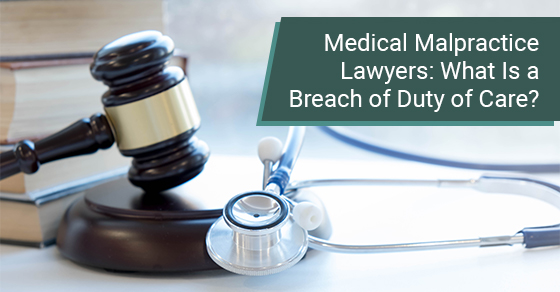What defines a breach of duty of care? When a person’s negligence leads to another individual sustaining an injury, the victim can claim compensation against the negligent person. The main aspect of negligence claims involves the duty of care. At Sommers Roth & Elmaleh, our medical malpractice lawyers can help you determine if this has been breached.
Claiming Negligence
Using evidence, the injured person and their lawyer must establish that negligence has occurred. Typical factors in successfully arguing the case are that there was a duty of care owed to the plaintiff from the defendant, that it was breached, and the plaintiff received injuries or damages.
What is a Duty of Care?
Defendants will owe a duty of care when it was reasonably foreseeable that the defendant’s actions or omissions caused harm to the plaintiff. A duty of care arises when there is an existing relationship between the parties.
Examples of duty of care are:
-
Drivers are responsible for adhering to regulations for safe driving. They owe others on the road, such as pedestrians and cyclists, a duty of care.
-
Healthcare professionals owe a duty of care to their patients.
-
Business owners owe customers a duty of care while on their premises.
How to Establish Successful Claims
The “onus” in successfully proving your case involves establishing a baseline. This baseline is what a “normal” healthcare professional with the same accreditation and the same experience would have done under the circumstances. These factors can include a range of possibilities.
In making a successful case, you must establish how the professional demonstrated negligence. The provider’s actions are compared to the baseline in order to determine whether malpractice did or did not occur.
Breach of Duty of Care
Medical professionals can and do make mistakes. However, just because an error was made doesn’t mean it was malpractice. For example, you visit a doctor’s office complaining that you feel like you have the flu and have bouts of diarrhea. You say that, occasionally, there is a bit of blood when you wipe.
Your doctor then notes that there is a history of hemorrhoids and prescribes medication. They assume that the symptoms presented are the cause.
However, you failed to tell them that this has been happening for months. You also failed to mention that you have been rapidly losing weight, as well as any other pertinent information that would lead to a proper diagnosis. Is the doctor at fault?
The answer is: probably not. The provider went by your medical history and the information provided. If you receive a cancer diagnosis down the road, the physician may not be considered liable. They offered reasonable care based on the information they had available.
Now, things may be different if you had stated all the facts and were concerned you had cancer. Based on the facts, a regular physician would order tests because of several red flags.
If you prove that they should have but didn’t provide proper care or ignored requests, then you may be able to prove negligence. A negligence case would be valid if testing by another doctor proved the existence of a cancer diagnosis. Not conducting further testing based on presenting symptoms can confirm a breach of the duty of care.
General Standards of Care
As mentioned, courts use a baseline for assessments if a noted standard of care is absent. People should provide the same quality of care that an ordinary individual would undertake in a similar situation. Plaintiffs must prove that the defendant failed to provide reasonable care while fulfilling their duty.
To successfully establish your case, you must prove that the person fell below the standard of care associated with a competent and prudent provider with the same training operating in the same conditions. However, the standard of care does not involve perfection. Given the circumstances, healthcare professionals are not held liable if their actions are reasonable.
Damage and Injuries
Plaintiffs must show that they have sustained injuries, loss, and damage resulting from the defendant’s negligence. There must be a negative result. There have been situations where there was no injury despite the healthcare professional’s negligence. Without an injury, a plaintiff cannot successfully establish negligence.
Causation
The final component to successfully establishing your case is showing that the professional’s conduct generated losses, injuries, and damages. You must prove that if they had not been negligent, there would have been a better outcome. It would help if you can verify that an injury would not have happened, or the result wouldn’t have been as significant.
Medical malpractice lawyers will call this establishing causation. However, it is a very complex issue to prove.
If you have sustained injuries and can prove the elements of negligence, then you may be entitled to compensation.
Do I Have Enough Evidence to Successfully Argue a Case?
The first step is to contact a medical malpractice lawyer. Before you do, though, you must gather evidence, medical documents supporting your case, and witnesses, if possible. Again, the burden of proof results in clearly establishing that negligence existed. You will need to prove the elements outlined above.
Our team of legal professionals will examine your case and determine if you have grounds to receive compensation. We specialize in handling medical malpractice cases and can inform you whether you have a solid chance of success. We may advise you to obtain supporting documentation and will help you do so. We can then guide you through the legal process.
At Sommers Roth & Elmaleh, medical malpractice suits are our specialty. We have over 40 years of trial experience and have a high success rate compared to other law firms. We will guide you through a difficult time in your life to enable you to move forward.
Please book your free consultation by contacting our team of legal professionals at 1-844-940-2386 or visiting our website here.

